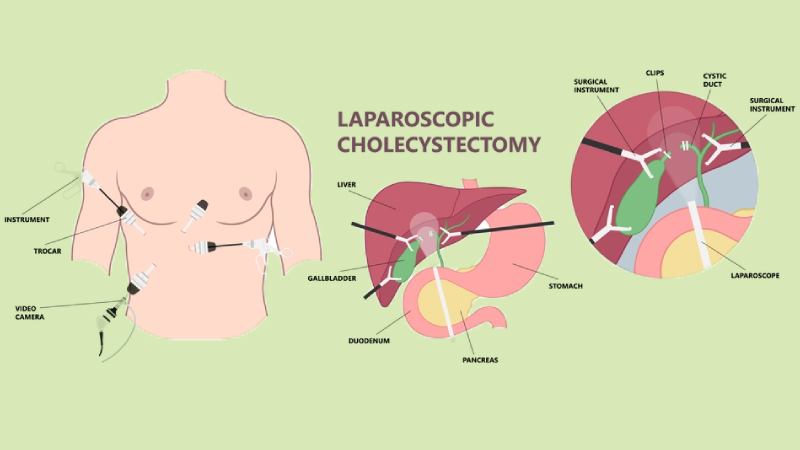
Laparoscopic Surgery in Navi Mumbai.
Dr. Vikram Raut, a highly experienced surgeon in Navi Mumbai, specializes in performing laparoscopic surgery. With his expertise and precision, Dr. Raut utilizes advanced techniques to perform minimally invasive procedures. He can access the liver with minimal trauma by making small incisions and using specialized instruments.
This approach results in more minor scars, reduced pain, faster recovery, and improved outcomes for patients undergoing laparoscopic liver surgery. Dr. Raut's dedication to high-quality care ensures patients receive personalized treatment and the best possible results.
What Is Laparoscopic Surgery?
Laparoscopic surgery is an advanced surgical process that offers significant benefits to patients. It is commonly known as minimally invasive or keyhole surgery. This method is widely used for most surgeries whenever possible. With technological advancements and sophisticated techniques, laparoscopic surgeries have become safer and more successful. During the procedure, small incisions are made. A tube with a camera is inserted to visualize the surgical site. Another incision is made for inserting special surgical instruments the surgeons use.
What are the benefits of laparoscopic surgery?
Laparoscopic surgery offers several advantages for both patients and surgeons. These include:
1. Smaller incision: The surgical site is accessed through tiny incisions. These incisions are designed to accommodate a small tube and instruments.
2. Less pain: Patients who undergo laparoscopic surgery experience less discomfort and pain.
3. Quick wound healing: The small incisions result in faster wound healing after surgery. The risk of infection in laparoscopic surgery is low.
4. Fast recovery time: Hospital stays are significantly shorter, and patients recover more quickly.
5. Fewer internal scars: With reduced bleeding and smaller incisions, there is a lower risk of developing internal scars for the patient.
What are the risks of laparoscopic surgery?
Laparoscopic surgery, like any other surgical procedure, carries certain risks. These risks are heightened if the patient has underlying medical conditions. The potential risks associated with laparoscopic surgery include bleeding, infection, clotting, damage to internal structures (such as blood vessels), and anesthesia side effects.
How is laparoscopic surgery different from open surgery?
Laparoscopic surgery differs from open surgery in several ways. Unlike open surgery, which requires a long incision to expose the surgical site, laparoscopic surgery involves 3-4 small incisions. The smaller incisions result in faster wound healing and recovery than open surgery. Since less body tissue is exposed to the external environment, laparoscopic surgery has a lower risk of infection than open surgery.
Can laparoscopic surgery be performed for cancer?
Laparoscopic surgery can also be used to remove tumors. The surgical outcomes of laparoscopic surgery for cancer are similar to those of open surgeries.


 WhatsApp
WhatsApp